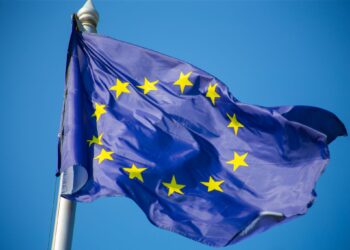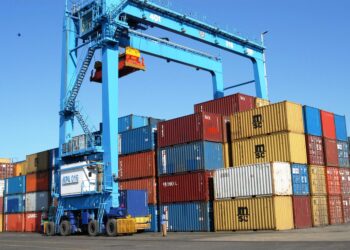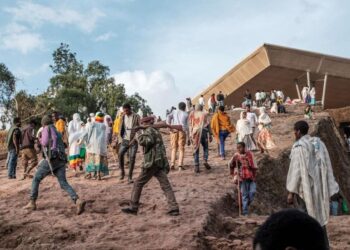The European Union (EU) has allocated €24.4 million to address the problem of illicit trafficking in Small Arms and Light Weapons (SALW) while enhancing cross-border cooperation in West Africa.
Enobong Moma, the EU Programme Manager for Organised Crime West Africa Response to Trafficking, disclosed this information during a roundtable discussion on Small Arms and Light Weapons Control in Nigeria held on Thursday in Abuja.
The roundtable has the theme, “Mapping the Landscape of SALW Proliferation in Nigeria: Gaps and Opportunities”.
Moma stated that the funding is part of broader regional endeavours to tackle organized crime and human trafficking in the sub-region.
According to her, substantial funding is necessary to support projects and endeavours targeting the eradication of illicit small arms and light weapons in countries and communities, ultimately promoting development.
- “In 2019, the pilot phase of an earlier intervention in the area of small arms was succeeded by the ongoing Organized Crime West Africa Response to Trafficking (OCWAR-T) programme, implemented by the GIZ and a consortium of implementing agencies.
- “With a total budget of EUR 24.4 million, this project is part of the regional effort to combat organised crime and trafficking in persons in West Africa.
- “By reducing the availability and illicit trafficking of SALW at the border community level and strengthening cross-border cooperation as well as the capacity of national actors on SALW control.
- “Broadly speaking, our programmes aim to strengthen the organisational capacities of National Commissions on Small Arms (NatComs) including the organisers of today’s event, the NCCSALW.
- “Its objective is also to improve public education and civic awareness on SALW proliferation and improve National Commissions’ and security sector institutions’ technical capacities in the field of SALW control,” she said.
More on the Story
Furthermore, the EU official emphasized the enhancement of operational capacities in several small arms control centres and their structures. This strengthening aims to effectively decrease organized cross-border violence and the availability of weapons within communities.
She said the achievements signalled some of the many evidences of the successful partnership between the EU, ECOWAS Commission, development partners and government agencies.
On his part, Dr. Sani Adamu, head of the ECOWAS Peace Support Operation, remarked that the roundtable signifies Nigeria’s tangible commitment to implementing crucial provisions outlined in the ECOWAS policy on arms transfer.
Adam said that Nigeria was the only country in the ECOWAS subregion that had so far fully and practically institutionalised the end-user certification process when it imported arms.
- “What is consistently missing is the need to put in place the institutional as well as implementation arrangement and the need for legislation,” he added.























